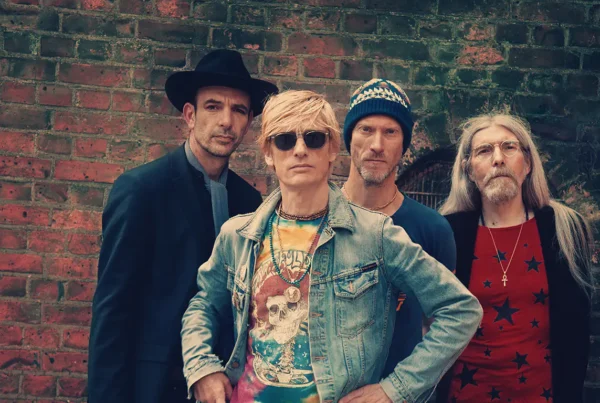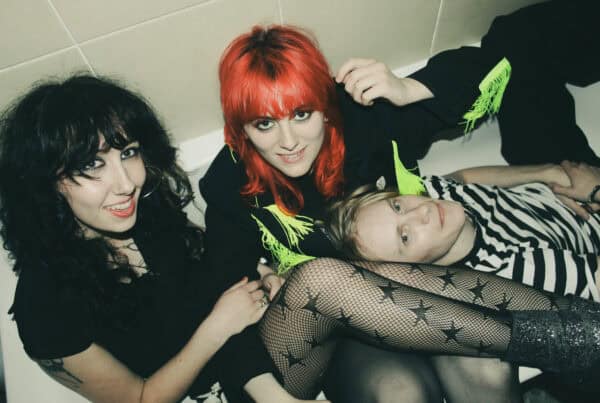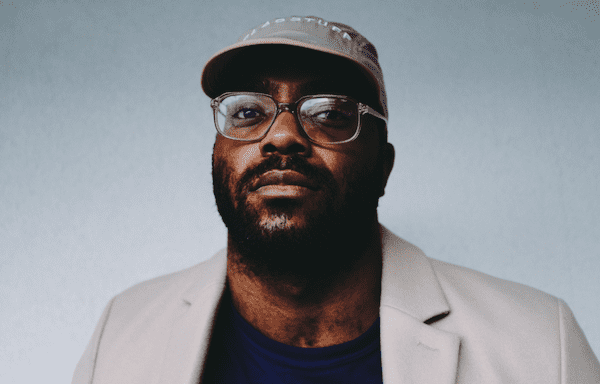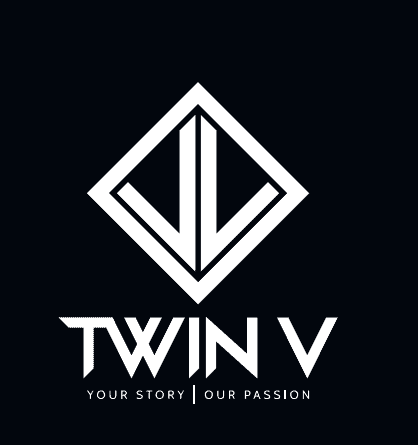In our latest Industry Spotlight, we chat to acclaimed soundtrack composer (Deadpool 2, John Wick, Guardians, Fast & Furious and many more) Tyler Bates about his career, and get some tips for emerging creatives.
S] What are you up to today, Tyler?
Today, I’m writing and recording tracks for ‘Stumptown’ and a new TV show I’ve just recently begun working on. Both shows require many performed tracks of guitar, bass, keys, and some niche instruments. It is time-consuming (as opposed to straight programming), but it’s fun.
S] A lot of creatives struggle with that all important work-life balance, have you got any tips?
I can’t say that I have mastered the “work-life” balance, at this point. It is definitely a focus for me, especially heading into the end of a wild and demanding year of a variety of projects. I have set parameters for 2020, that I fully intend to abide by. Number one, is to no longer work Sundays.
S] Any tips for dealing with the pressure of that looming project deadline?
Breathe! And focus on your creative objective. The schedule for most projects is intense and demanding. Over time, you learn how to get to the core of your ideas more quickly, so the schedule becomes less daunting. It’s similar to “the game” slowing down for an NFL quarterback as they gain experience. The more experience you have, the more clearly you can understand how to meet your objective in the time allotted to do so. It’s also important to not allow the stresses and attitudes of other negatively impact you. We can give our best effort. Beyond that, we become more efficient as we gain more working experience. This takes time. We are not performing neurosurgery.
S] How did your work in Marilyn Manson challenge you in different ways to your scoring work?
Over the years of collaborating with directors, producers, editors, singers and musicians, my approach to collaborating became more about storytelling and emotion than making riffs and beats. I consider the process a conversation in music, where equipment becomes invisible in the process of creating.
There is no other artist/human like Marilyn Manson. After getting to know him for a year or so, we decided to work together. My goal was to create a fresh start musically for him when we made ‘The Pale Emperor,’ while understanding and underscoring compelling aspects of his talent and personality that I felt had yet to be shared with his audience in recorded form. The greatest challenge working with any artist is to earn their trust so that you can explore new ideas together. I’ve heard many stories from artists who talk about how they felt like their own albums became the byproduct of the producer. It’s of paramount importance for the artist to know and feel every element of the body of work, regardless of whether they play an instrument.
With Manson, the music/songs happened very naturally because the entirety of our sessions was conversational. There was magic at play when we made ‘The Pale Emperor.’ It’s difficult to explain, but there is a colourful story about the creation of every song on that record. The album, ‘Heaven Upside Down,’ was a different process because we wrote and recorded half of the album, went on tour for several months, and then returned to my studio to complete it. It was unique in that we were able to bring the energy of just coming off tour into the studio.
My years of experience working with directors certainly helped Manson and I to have a great working experience over the years. And we became great friends through the process.
S] What would your advice be to emerging composers who want to follow in your footsteps?
Forge your own path. Write music that you want to be commissioned to write, as opposed to being a “jack of all trades.” Commit to authenticity in all that you do. You won’t love or feel spectacular about everything you create, but if you do your best with each opportunity, you’ll be ok. Careers happen differently for everybody. I work in every medium possible to continue to challenge myself to grow from new experiences. This is how I keep the fire for what I love to do every day of my life.
S] How do you define success as an artist?
TB-I think success is personal. If you do what you love, and have great people in your life who bring out the best in you – you’re a success by my standards.
S] What specific people, places and things inspire you outside of music?
TB-I am inspired by my friends and family. We have all been through great times, and not so great times. Some of the people in my life have celebrated career highlights when I was not having success procuring work. But their successes inspired me to refocus and continue to pursue what I love. Many artists have been portals to new ideas for me. I am inspired by great people who are intent to elevate those around them.
S] What would you say that your biggest challenge is as an artist right now?
My greatest challenge as an artist is to conceptualise and execute ideas that are interesting to me that will also satisfy the creative objective of the people who commission me to create music. Time and resources are always a tremendous challenge. It’s very easy to go to the movies or watch a TV show and say, “I coulda done that in a day.” Haha. Doesn’t work that way. There are many forces at play when you are a working artist, especially in film and television. The higher the budget, the greater the pressure and expectations placed upon you. Breathe. And keep your cool!
S] What are you working on now, as we head into 2020?
I’m currently working on ‘Stumptown’ (ABC), and ‘Primal’ (Adult Swim), and a couple other shows I am not at liberty to discuss yet. This was an intense year. I scored ‘John Wick Parabellum,’ with my good friend, Joel Richard, went straight into ‘Hobbs and Shaw,’ wrote and produced much of the new Bush record, including the song “Bullet Holes,” just had the premiere of the new Cirque du Soleil show R.U.N, to which I wrote and produced the score plus five songs with various artists. And did season two of ‘The Purge’ TV series, and ‘Creepshow.’ That’s not all of it, but you can probably guess why I’m not going to work Sundays for the foreseeable future. Haha.
S] What are two or three of the greatest memories associated with your work?
Recording the score for ‘Dawn of the Dead’ at the Newman stage on the FOX lot. It was my first large orchestral score. It was like plugging into a Marshall stack for the first time. Making ‘The Pale Emperor,’ then touring the planet with Marilyn Manson. That was totally fun and insane. I loved recording my daughter, Lola, as the pianist on the first ‘Guardians of the Galaxy’ movie when she was twelve. That was an overdub session at Capitol Studios, but she was also the pianist in the orchestra at Abbey Road for the second one. As a father, that was a great moment for me personally. Performing with David Hasselhoff with my daughters Sami and Lola, and my good friend, John Swihart, last year on the Howard Stern show, was surreal and rad. I could easily name one hundred great memories in my career. I’m very thankful to have had many incredible experiences in life.
Editor.






